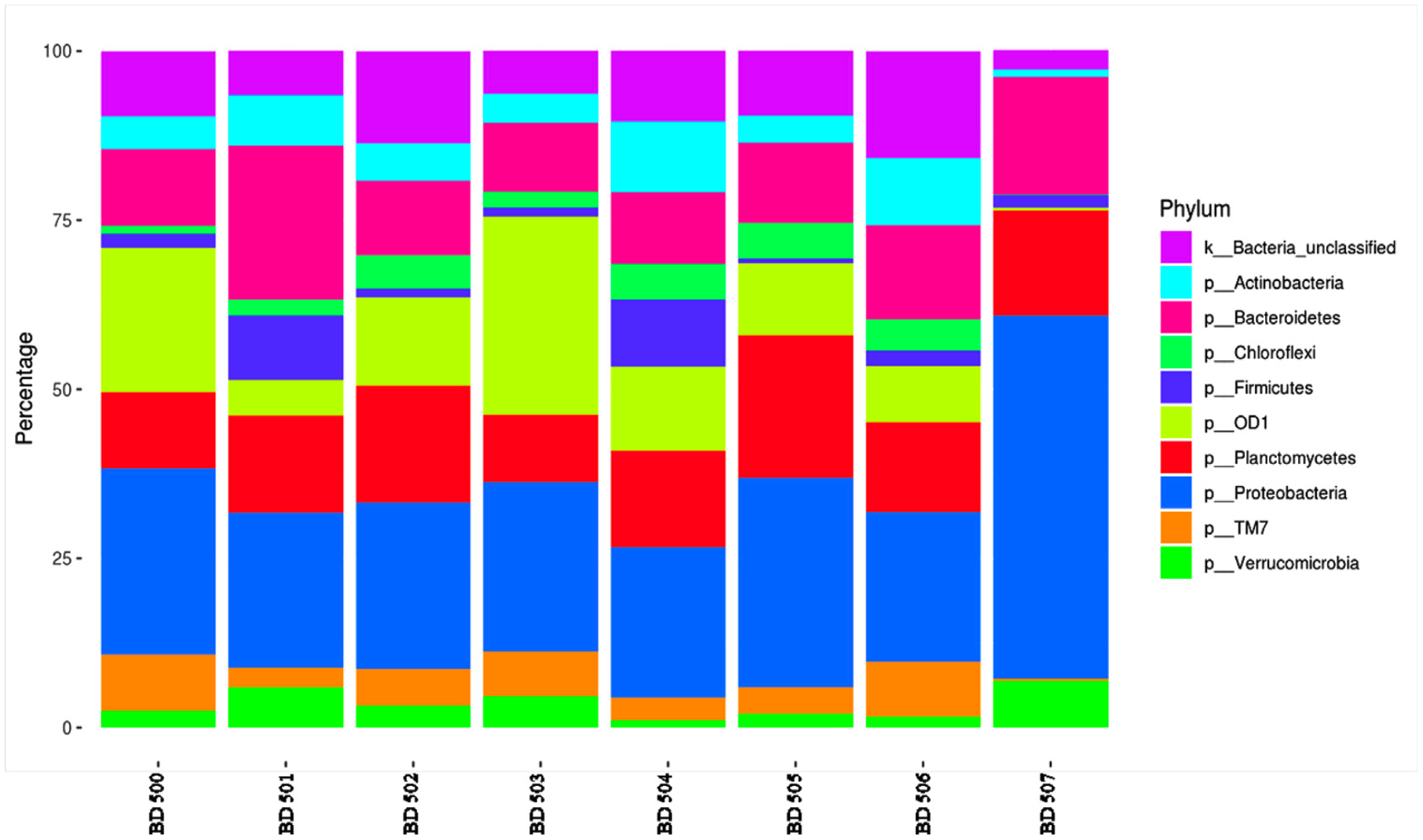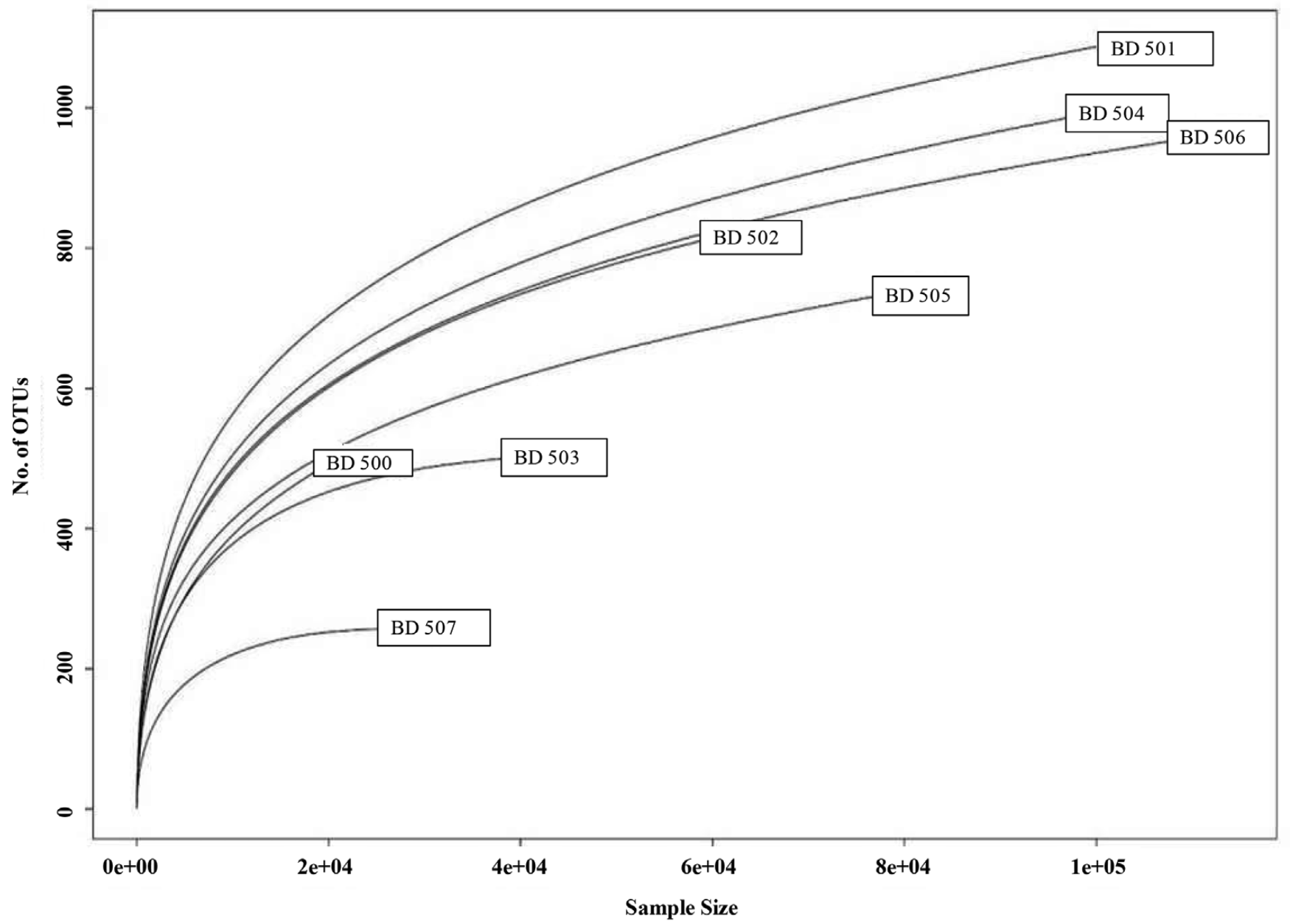In this study, Vaish et al. analyse biodynamic preparations at the genetic level. The aim is to gain a better understanding of their effects on soil quality, plant growth and the quality and quantity of the harvest. To this end, they are analysing the genetic diversity of the bacteria in the preparations BD500 to BD507 in a metagenomic study for the first time. The results confirm that the preparations contain a large number of different bacteria with numerous plant-promoting properties.
News
Reference
New research on bacterial diversity in biodynamic preparations
Introduction
Biodynamic agriculture favours the use of specific preparations made from natural materials such as cow dung, herbs and minerals. These preparations are designed to revitalise the soil and promote microbiological diversity, ultimately leading to healthier and more resilient plants with increased fruit and seed quality. The eight most common preparations are BD500 to BD507, each of which has different starting materials and areas of application.
In contrast to biodynamic agriculture, conventional agriculture has higher yields, but the frequent use of chemical fertilisers and pesticides has long-term negative effects on the environment and human health. Against this background, biodynamic agriculture is gaining in importance as a more environmentally friendly alternative.
Summary
The study investigated the bacterial communities in different BD preparations using a metagenomic analysis based on 16S rRNA gene sequencing. This method makes it possible to identify the diversity and function of the bacteria present in the preparations.
The analysis showed that the biodynamic preparations have a high bacterial diversity, with Proteobacteria being the dominant group. In particular, preparation BD506 showed the highest diversity of Proteobacteria, followed by BD505 and BD501. These bacteria are known to fix nitrogen, which can promote plant growth. The study showed that BD501 and BD506 had the highest bacterial diversity. The preparations also contained functional groups of bacteria involved in important metabolic processes and enzyme activities.
Figure 1: Relative abundance of the 10 most important bacterial taxonomic groups in the common biodynamic preparations. Each colour represents a taxonomic group of bacteria. The length of the colour block shows their relative share of the total frequency. Phylum: High taxonomic category (in the animal kingdom, for example, vertebrates form a phylum).
The results indicate that biodynamic preparations can have positive effects on soil quality and plant growth by promoting bacterial diversity and activity in the soil. The presence of proteobacteria could explain why these preparations work well in practice. These bacteria contribute to nitrogen fixation, break down organic matter and promote plant growth directly by producing plant hormones and indirectly by protecting plants from pathogens.
To summarise, biodynamic preparations have significant potential to promote sustainable agriculture. Their ability to support the soil microbial community and improve plant health plays an important role in reducing the use of chemical fertilisers and pesticides (More on stress responses of biodynamically grown plants). However, further research is needed to understand the exact mechanisms of the preparations and their long-term effects on soil and plants, and to optimise their use in agriculture.
Deepening
What is metagenomics?
Metagenomics is the primary research method used in this study and allows to analyse the genetic composition of all microorganisms (such as bacteria, viruses and fungi) in a given environment - for example in soil, water, or biodynamic preparations. Instead of isolating and cultivating individual microorganisms in the laboratory, the entire DNA from an environmental sample is analysed. This makes it possible to find out which microbial species are present, how they interact with their environment and what functions they have without having to cultivate them beforehand. Metagenomics is a holistic research approach.
Figure 2: Number of bacterial species (OTU's - ‘Operational Taxonomic Units’) in the different biodynamic preparations. The preparations BD501, BD504 and BD506 show a particularly high bacterial diversity. BD501 contains over 1000 bacterial species.
Which aspects are particularly relevant from a biodynamic point of view?
- Biodynamic preparations contain an extraordinary diversity of beneficial bacteria. This bacterial diversity helps to improve soil fertility and plant growth and supports the ecological balance.
- The bacteria contained in the preparations are involved in important metabolic processes that not only promote plant growth, but also the regeneration and health of the soil (more on ‘inoculating’ the soil).
- Biodynamic preparations achieve improved soil quality and increased yields without the use of chemical fertilisers and pesticides. This emphasises the potential of biodynamic agriculture to promote sustainable and environmentally friendly methods.
What are the limitations of this study and its conclusions?
It remains to be seen how the specific bacterial compositions react to different soil and climatic conditions in the long term. Although the use of metagenomics is innovative, the practical applicability of the results to farms remains unclear. In addition, there is a lack of comparative data on other sustainable methods such as organic farming, which makes it difficult to evaluate biodynamic preparations. Further long-term studies are needed to evaluate the ecological and economic effects more comprehensively.
Sources and further links to this article
- Original study: Vaish, s., Soni, S. K., Singh, B., Garg, N., Ahmad, I. Z., Manoharan, M., Trivedi, A. K. Meta-analysis of biodynamic (BD) preparations reveal the bacterial population involved in improving soil health, crop yield and quality. Journal of Genetic Engineering and Biotechnology, Volume 22, Issue 1, 2024, 100345, https://doi.org/10.1016/j.jgeb.2023.100345
- Study report “Differences in stress reaction between biodynamic and conventional vines”
- Study report «Who is actually fertilising whom?»

